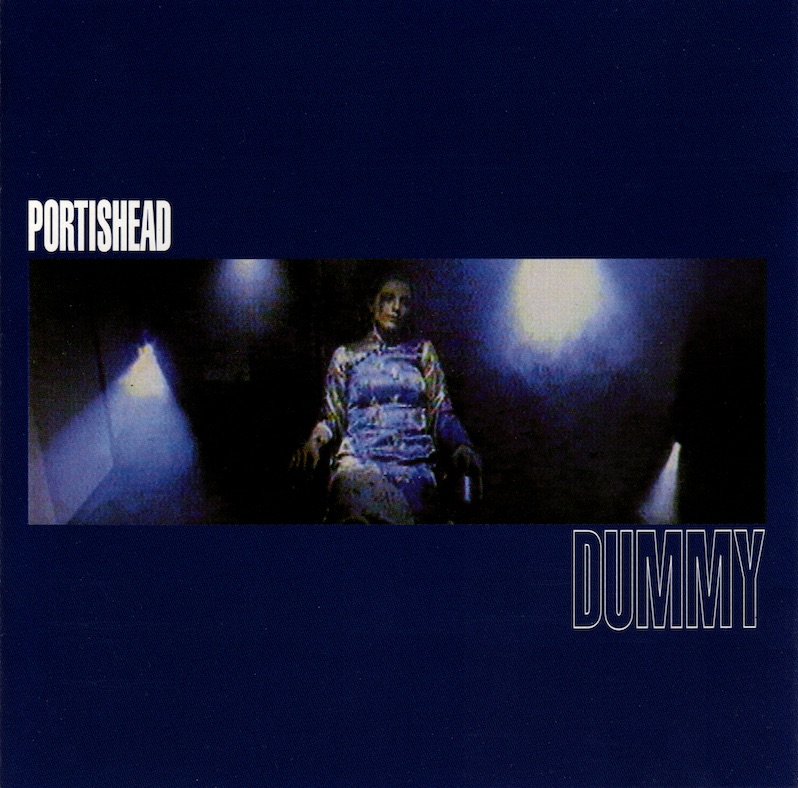Portishead proved why they are one of the greatest bands of their generation by exhibiting traits that all forward-thinking artists share. Prince, De La Soul, David Bowie, and Beyonce, over the course of a stellar career, all made hyperspecific music.
Dummy, Portishead’s first masterpiece, accidentally cast such a wide net that it transfixed all different types of unassuming crate diggers and vinyl enthusiasts, leaving them unable to shake it off. Geoff Barrow and Beth Gibbons, who formed the band after meeting at an Enterprise Allowance course in February 1991 at the dole office during a coffee break—and Adrian Utley later—made an album that projected an unadulterated love for wax. From sampling folk music that held cursed unearthly snippets of eroded dreams, cooking up instrumental hip-hop breakbeats, juggling the blues, dub and jazz aesthetics.
What got branded as a trip-hop album had more in line with Nirvana’s grungy dynamic contrasts—a sentiment that Gibbons herself agreed with—painting an accurate emotional sound sketch of what Bristol, in the southwest of England, had circulating in the air during the early ’90s. Stark, pictorial fusions of beat-driven grit and redemptive instrumentation, add cinematic verité atmosphere, and Beth Gibbons’ crestfallen, pulp-novel expressive vocals, this English band—curating with mostly a TASCAM 244 Portastudio 4-Track Cassette Recorder—would seduce the curiosity of an entire planet, revealing quite a strange Venn Diagram of aficionados that had no end.
Danger Mouse conceived his career from their lead. Portishead somewhat mocked (in a good way) Björk, and had their tracks sampled on numerous New York ’90s breakbeat white labels used for hip-hop productions (I owned a couple by the Beatnuts) or in the club for move the crowd workouts. Their songs traveled a wide bandwidth; the rolling breezeway groove of “Pedestal,” equipped with cuts and vinyl manipulations and inspired trumpet solo in the middle, to the cold pain “nobody loves me, it’s true, not like you do” in “Sour Times.”
“Portishead’s 1994 debut is a masterwork of downbeat and desperation” stated Philip Sherburne in 2017 for Pitchfork. “They invented their own kind of virtuosity, one that encompassed musicianship, technology, and aura.” So how do you explain this odd duck of a group, outta nowhere, bumping against Soundgarden, Green Day, Beck, Hole, Blur, Beastie Boys, Nas and Massive Attack in holding cultural space for a top record in 1994?
It was an eleven-song soundbath that all music lovers could warm their hands and minds around. When I heard it in numerous dive bars in San Francisco via a charming jukebox—well, several jukeboxes—it always created discussion among strangers.
It’s that everything-is-fucked vibe of whichever Nirvana album you consider to be their best (Gibbons is correct on that front), but it also tipped its hat to the culture’s “records will be made from records” philosophy. Then Gibbons presents a UK blues-influenced expanse that fits well with the era’s canon of records, including those by PJ Harvey, Tori Amos, and the Hope Sandoval-led Mazzy Star. But most of all as with all superior albums, it sounded like nothing else at that time and then over 5, 10, 15 years you hear so many trying to replicate that miracle of the Gods to no avail.
Note: This article was originally published in 2022 and has since been updated.
Note: When you buy something through our affiliate links, Treble receives a commission. All albums we cover are chosen by our editors and contributors.
Support our Site—Subscribe to Our Patreon: Become one of our monthly patrons and help support an independent media resource while gaining access to exclusive content, shirts, playlists, mixtapes and more.



